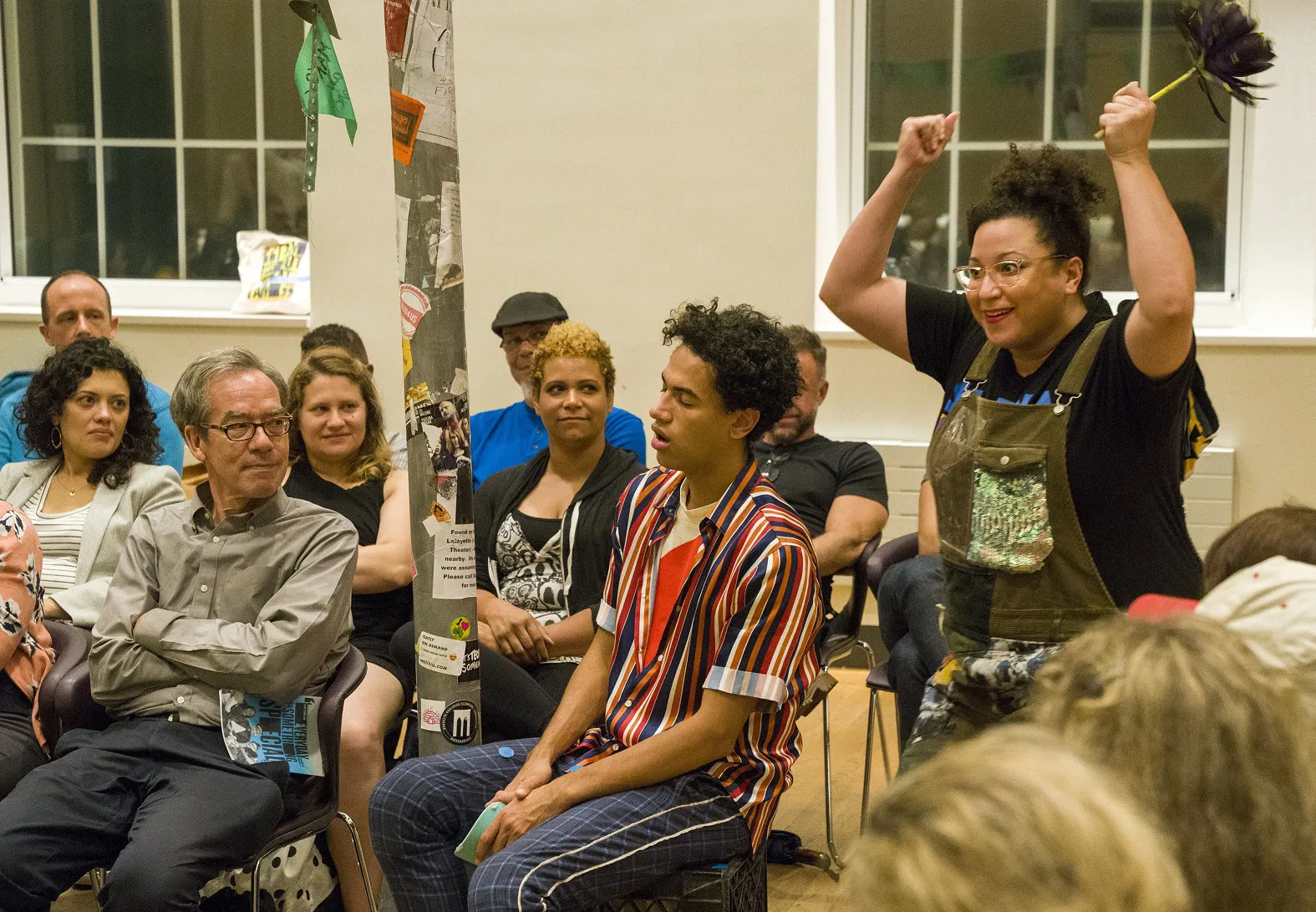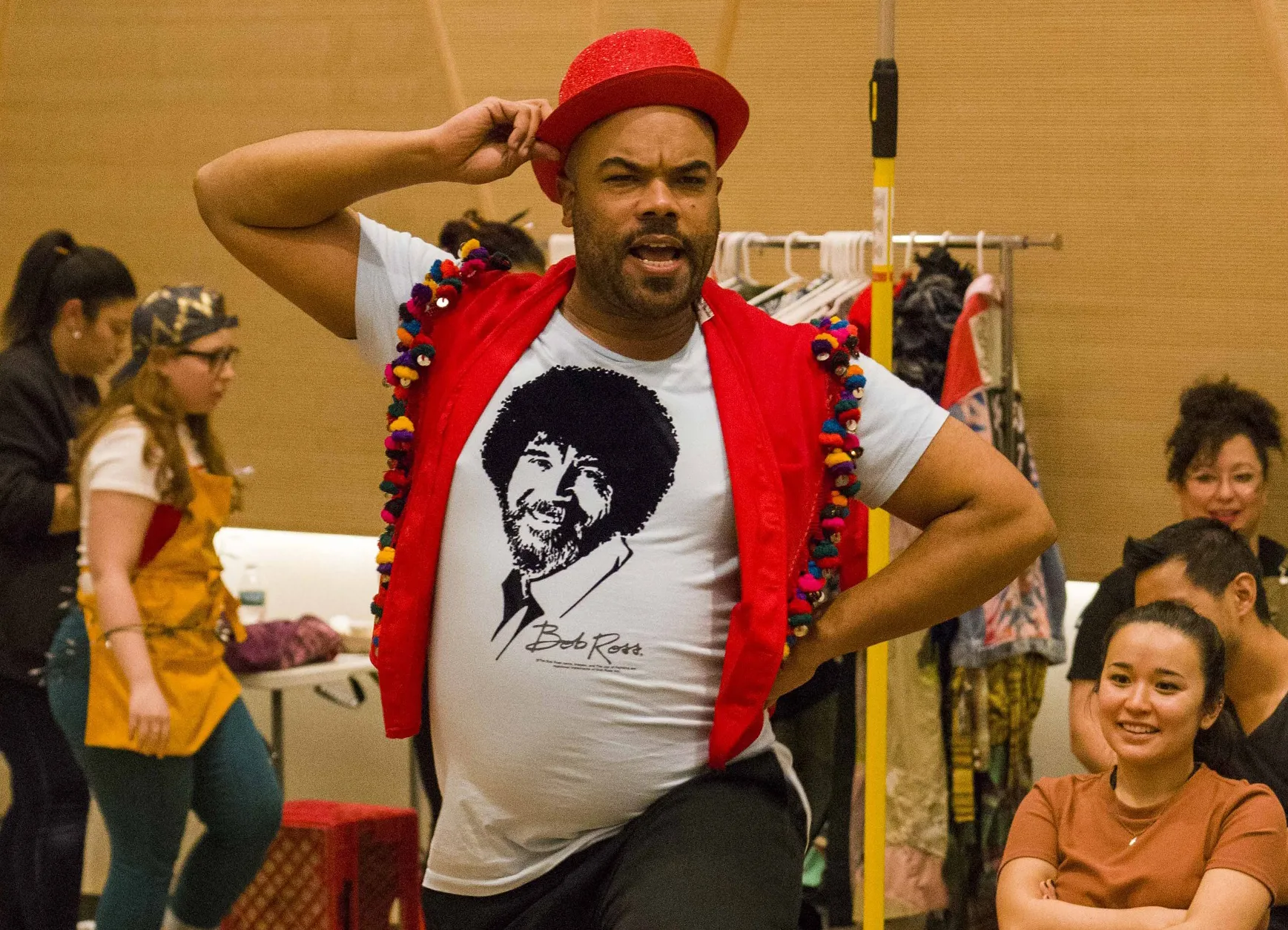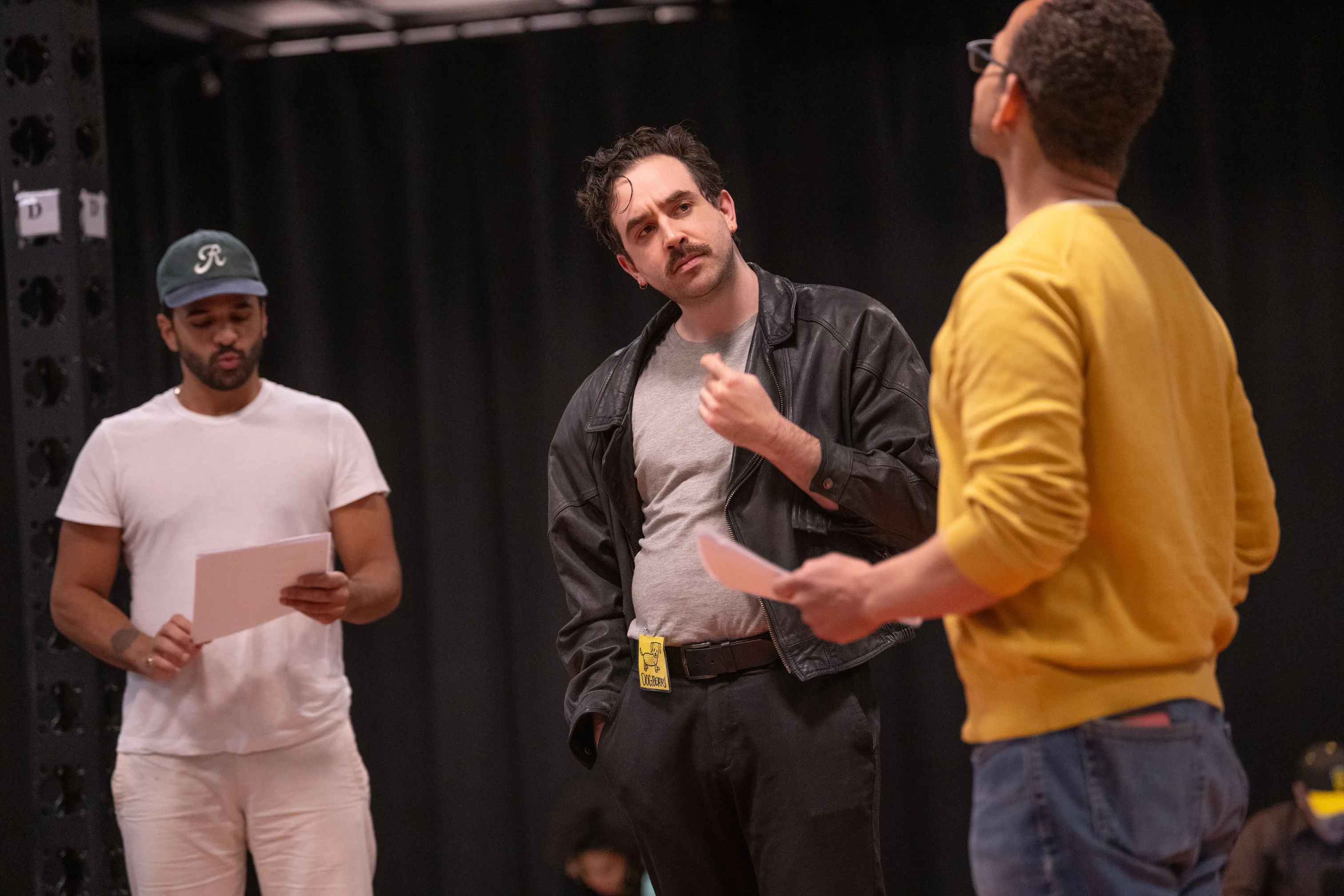The Performance of Care: Mobile Unit Alums David Ryan Smith and Natalie Woolams-Torres Discuss Community-Based Theater

Natalie Woolams-Torres in the 2018 production of Mobile Unit's MUCH ADO ABOUT NOTHING. Photo credit: Richard Termine.
By Ciaran Short
To further contextualize a tradition that spans not only the past 15 years in its current iteration, but back to the 1950s with Joe Papp’s original Mobile Theater, I spoke with Mobile Unit alums David Ryan Smith and Natalie Woolams-Torres, who performed together in the 2018 Mobile Unit tour of A MIDSUMMER NIGHT’S DREAM. The deep bond David and Natalie developed during their tour demonstrates the core values that define Mobile Unit: openness, connection, and community. In celebration of Mobile Unit’s 15th anniversary, David and Natalie provided their firsthand accounts of Mobile Unit performances, offering insight into the direct impact and continued legacy of Mobile Unit as a unifying force in the theater community, and New York as a whole.

David Ryan Smith in the 2018 production of Mobile Unit's MUCH ADO ABOUT NOTHING. Photo credit: Richard Termine.

Hiram Delgado, Cornelius McMoyler, and Robert Marcelo Jiménez in rehearsal for the 2025 Mobile Unit production of MUCH ADO ABOUT NOTHING. Photo credit: HanJie Chow.
CS: What is the role of Shakespeare’s plays, or theater in general, in today’s society, given that theater is often seen as an inaccessible or intimidating art form?

Mayelah Barrera, Keren Lugo, and Sara Ornelas in rehearsal for the 2025 Mobile Unit production of MUCH ADO ABOUT NOTHING. Photo credit: HanJie Chow.
Despite being directly confronted with limitations of art in the face of profound systemic hardship, both actors persisted and used the tools at their disposal to positively affect others. The act of care and commitment to vulnerability through performance is immense; such a choice is at the very heart of what makes Mobile Unit so special. Traditional theaters and performance venues are designed to streamline productions within existing infrastructure, and most frequently offer one-directional performances where the performers provide an experience that the audience, for the most part, receives and strives to comprehend. By creating a transitory play and encouraging participation, reaction, and co-creation, Mobile Unit actively chooses the path of most resistance for the sake of widespread access. With the further polarization of politics, society is largely focused on advancing ideological agendas rather than fostering meaningful dialogue and taking care of one another. Mobile Unit shrinks the vast metropolis of New York City and resituates actors, Shakespearean characters, and the theater itself as community members and neighbors, trying its best to entertain and care for its audience.

Ciaran Short is an interdisciplinary artist, writer, and activist born and raised in NYC. His work explores New York culture and tackles issues of race and masculinity. His multifaceted creative practice stems from an interest in holistic storytelling using a multimedia approach. His writing has been featured in publications such as The Independent, Newsday, and Honeysuckle Magazine. He holds a masters degree in Media Studies from the New School and can typically be found hanging out in New York City’s Chinatown.